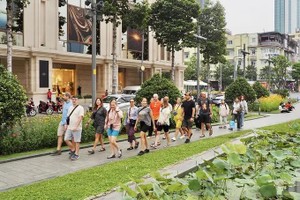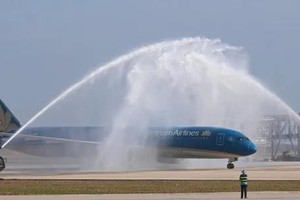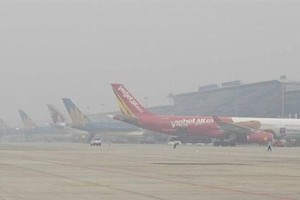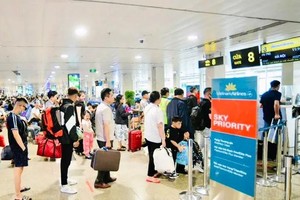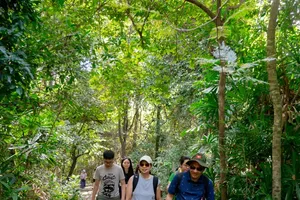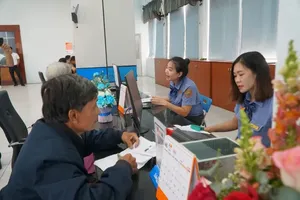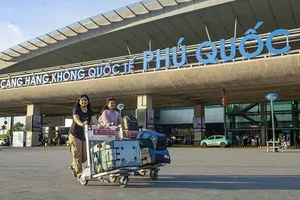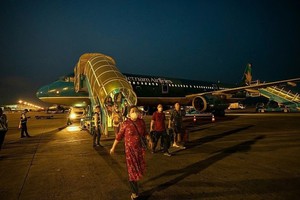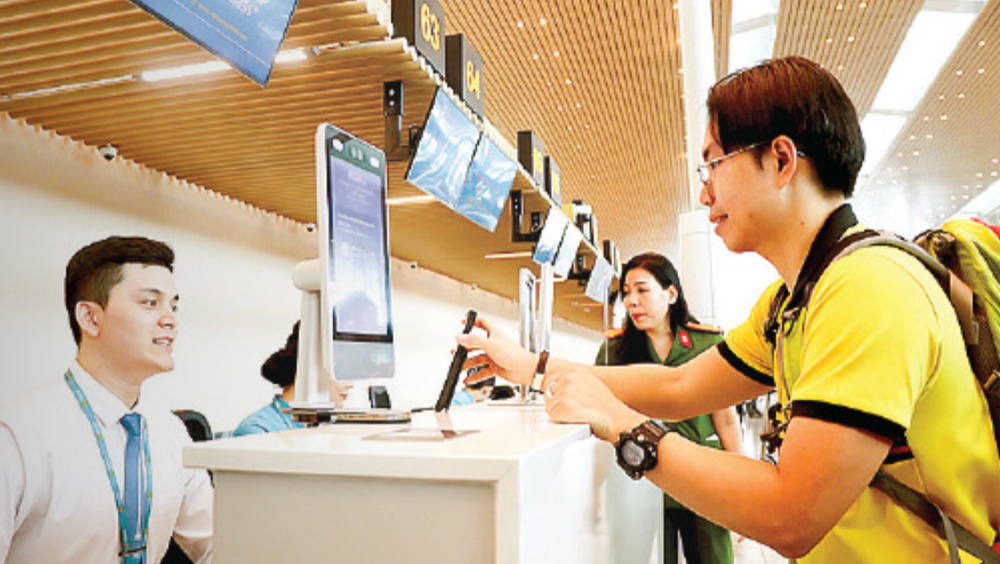
Among domestic carriers, Bamboo Airways led the industry with the on-time performance rate of 81 percent, followed closely by Pacific Airlines at 80.2 percent and VASCO at 78 percent. Vietnam Airlines reported an on-time rate of 71 percent, while Vietravel Airlines posted 67.7 percent.
The first six months of 2025 also saw domestic airlines cancel a total of 844 flights, accounting for 0.6 percent of all scheduled operations, an increase of 0.2 percentage points year-over-year.
According to Ms. Kim Ngan, Deputy Director of Noi Bai International Airport, the majority of flight delays in the first half of 2025, up to 93.8 percent, were attributed to airline operational issues. Weather-related delays accounted for only 1.8 percent, while the remainder stemmed from factors such as ground service equipment and air traffic control operations.
Noi Bai International Airport is currently working closely with airlines and ground handling service providers to implement a range of coordinated measures aimed at improving on-time performance in the months ahead.
Specifically, the implementation of Airport Collaborative Decision Making (A-CDM), a new technology-driven air traffic management system, has enabled more proactive coordination among relevant units at the airport. The system facilitates real-time information sharing and decision-making while optimizing the use of flight data to ensure operations adhere strictly to established procedures.
By improving the allocation of runways and parking stands and minimizing ground waiting times, the A-CDM model has significantly contributed to enhancing the overall on-time performance of departing and arriving flights.
Airports across the country are also working collaboratively to implement Level 3 Multi-Nodal Air Traffic Flow Management (ATFM), a more advanced method of managing air traffic flow. The system aims to minimize airborne holding and delays caused by adverse operating conditions such as inclement weather, military exercises, or major political and economic events.
Mr. Uong Viet Dung, Director General of the Civil Aviation Authority of Vietnam (CAAV), stated that the agency conducts monthly monitoring of on-time performance across all domestic airlines. The Authority has issued directives urging carriers to pay special attention during peak travel periods. Airlines have been instructed to increase flight frequencies and add additional services during off-peak and nighttime hours in an effort to minimize delays and cancellations and improve passenger service quality.
In response to passenger complaints regarding prolonged immigration procedures affecting the experience of international travelers arriving in Vietnam, airport authorities clarified that passport control and immigration stamping are managed by the border gate police, while customs screening is the responsibility of the customs department. Immigration procedures are generally swift during off-peak hours. However, during the peak period, when multiple international flights land in quick succession, queues at immigration counters may become significantly longer. Airports typically intervene only in cases where passenger complaints are formally submitted or issues are identified through internal monitoring and oversight systems.




